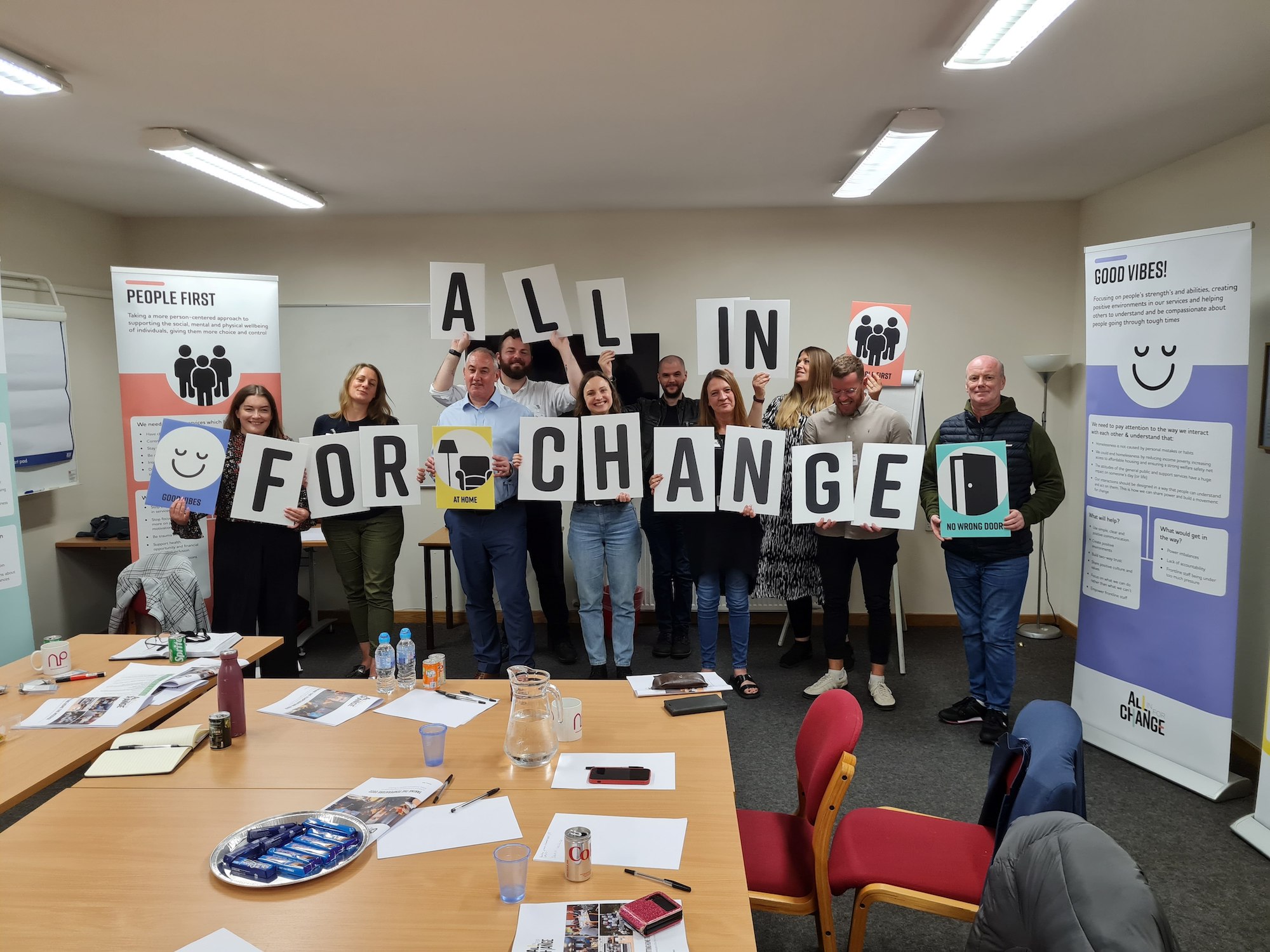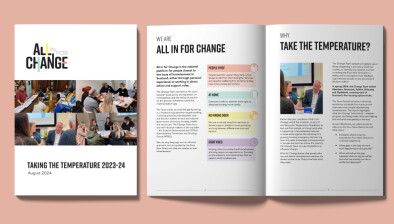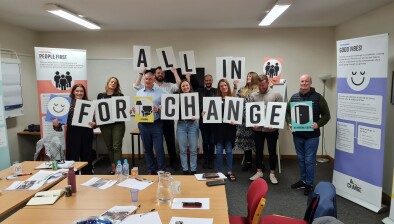All in for Change hailed for 3 years of action and influence

Scotland’s fight against homelessness is being revolutionised by the unique insights of those who have experienced it firsthand, a report into its first three years has shown.
They are influencing Scottish Government policy and inspiring organisations through their work on Homeless Network Scotland and Cyrenians’ All in for Change programme.
The Change Team works collaboratively with decision makers to develop homelessness policy and one of its biggest successes has been developing the ‘Ask and Act’ prevention duties proposed for public bodies, due to be brought into law.
Other significant achievements since 2019 include influencing policies around rapid rehousing, helping to end the Local Connections policy and giving evidence to MSPs as part of development of the National Care Service.
Policy workers who engaged with the Change Team reported that their unique insight into what works on the ground and impartial input had added credibility to their own work by strengthening the evidence they use to design and improve services.
They said working with Change Leads – including paid Associates with Homeless Network Scotland – helped foster culture change in their organisations, furthering a shift towards prevention and participation informed by the programme’s 4 New Directions to end homelessness.
All in for Change was also credited with overturning stereotypes of people who have experienced homelessness, and Change Leads said their experiences had helped their wider work as they felt respected and “listened to”, boosting their confidence and self-esteem.
The findings emerged in a survey and interviews with Change Leads and policy staff for the report ‘Hitting Home the Message’, an evaluation of the programme to date.
All in for Change was created to help achieve policy objectives set out in the Scottish Government-COSLA joint Ending Homelessness Together Action Plan.
Key aims of the programme, facilitated by Homeless Network Scotland, Cyrenians and Scottish Community Development Centre, are bringing about co-ordinated working between different services and ensuring support services take a person-centred approach.
Respondents to the report said more urgent change is needed to connect services and create ‘No Wrong Door’ for people - and that more support is badly needed for those in support roles.
David Ramsay, impact lead at Homeless Network Scotland, said: “The Change Team has demonstrated time and again the value of co-developing policy and service design with people who know what works on the ground. They can sense-check policy to guard against complacency.
“Every policy worker interviewed for the report said they would engage with the Change Team again. This speaks volumes about the power of the team to break down barriers in the policy landscape.”
The report also commends the Scottish Government’s Homelessness Unit for enabling and funding the programme and makes a series of recommendations at national, local and programme level.
These include broadening the scope of the Ending Homelessness Together Action Plan to include poverty and inequality – the overarching drivers of homelessness – and for local authorities and health and social care partnerships outside Glasgow to explore local platforms for lived experience.
Change Leads on the Prevention Commission made a significant contribution to the new Housing Bill due to become law in this parliament by coming up with the ‘Ask and Act’ recommendation, which requires relevant public bodies to ask people about their housing situation to identify issues early – and then act to support them.
The team also identified the unfairness and ineffectiveness of the now-removed Local Connections policy, which restricted access to local services to people who could prove they had a connection to the area, and helped the Scottish Government finalise new guidelines on the Unsuitable Accommodation Order.
One policy officer said of the team’s wider influence: “Engaging with the Change Team allowed me to help us understand the difference between active engagement with a particular demographic versus public engagement, which is a far more generic thing. We’ve seen organisational change as a result.”







